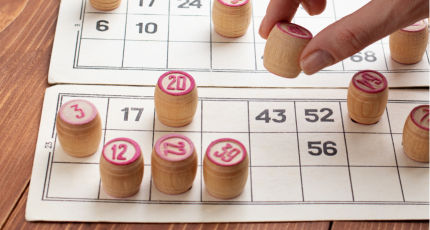
Lottery Winners Who Lost It All: Financial Lessons for Potential Millionaires
The lottery represents the ultimate financial fantasy – instant, unearned wealth that seemingly solves all problems. Yet the sobering reality is that an estimated 70% of major lottery winners eventually declare bankruptcy or otherwise lose their newfound fortune.
Behind the celebratory photos and oversized checks lies a troubling pattern of financial mismanagement, exploitation, and poor decision-making that has transformed lottery dreams into nightmares for numerous winners across Nigeria and beyond.
This article examines several cautionary tales of lottery winners who lost everything, identifying the common pitfalls and extracting valuable financial lessons that apply not just to potential jackpot winners, but to anyone who might suddenly come into significant wealth.
The Psychological Impact of Sudden Wealth
Before diving into specific cautionary tales, it's important to understand why lottery winnings so often lead to financial ruin. Psychologists and financial experts point to a phenomenon called "sudden wealth syndrome" – a set of psychological and behavioral challenges that occur when individuals receive large sums of money without the experience or knowledge to manage it.
"The human brain isn't wired to handle sudden extreme wealth," explains Dr. Funke Adebayo, a financial psychologist at the University of Lagos. "The transition from financial scarcity to abundance creates cognitive dissonance that can lead to irrational decisions, especially when combined with the intense social pressure that lottery winners face."
This psychological effect manifests in several common patterns:
- Consumption instead of conservation: Prioritizing immediate gratification over long-term financial security
- Identity disruption: Struggling to maintain a sense of self when circumstances change dramatically
- Social pressure: Facing overwhelming requests from family, friends, and even strangers
- Risk perception changes: Developing a false sense of financial invulnerability that encourages poor investment decisions
Cautionary Tales: Nigerian Lottery Winners
Adebisi Okenla: From ₦350 Million to Debt in Three Years
In 2018, Lagos resident Adebisi Okenla won ₦350 million in a national lottery. Like many winners, his initial purchases included luxury items – a mansion in Lekki, three imported cars, and designer clothing. He also launched several businesses despite having no entrepreneurial experience.
By 2021, Okenla had depleted his entire fortune. His businesses failed due to mismanagement, he had given away millions to friends and family who demanded "their share," and his lifestyle expenses far exceeded sustainable levels.
"I thought the money would never end," Okenla admitted in a 2023 interview. "I was spending ₦5 million monthly on just maintaining my lifestyle, without any income to support it."
Today, Okenla works as a taxi driver and lives in a modest apartment. His mansion was repossessed when he couldn't pay taxes on it, and he remains in debt to several creditors.
Solomon Ibekwe: The Failed Investment Catastrophe
When Solomon Ibekwe won ₦120 million in 2019, he took a seemingly responsible approach by immediately looking to invest his winnings. Unfortunately, his lack of investment knowledge led him to trust unscrupulous "wealth managers" who steered him toward fraudulent investment schemes.
Ibekwe invested ₦80 million in a real estate development that turned out to be completely fabricated, with no actual construction ever taking place. Another ₦25 million went into a fraudulent cryptocurrency venture that collapsed within months.
"I thought I was being smart by investing rather than spending," Ibekwe said. "But I didn't know how to verify the legitimacy of investments or perform due diligence. I trusted people simply because they wore nice suits and had fancy offices."
International Examples: Bigger Wins, Bigger Falls
Jack Whittaker (USA): $315 Million to Bankruptcy
One of the most infamous lottery cautionary tales involves Jack Whittaker, who won a $315 million Powerball jackpot in 2002 (approximately ₦488 billion in today's value).
Despite being financially stable before his win (he owned a successful construction company), Whittaker's life spiraled downward after the lottery. He was robbed multiple times, with thieves once taking $545,000 in cash that he was carrying in his car. His granddaughter and her boyfriend died of drug overdoses, which Whittaker attributed to the negative influences that came with his newfound wealth.
Legal problems mounted as Whittaker was sued numerous times, often by people he'd been generous with. By 2007, he claimed to be broke, and his daughter had died under mysterious circumstances.
"Since I won the lottery, I think there is no control for greed," Whittaker said in a rare interview. "I think if you have something, there's always someone else that wants it."
Callie Rogers (UK): From Millionaire at 16 to Working Multiple Jobs
Callie Rogers was just 16 when she won £1.8 million (approximately ₦3.2 billion) in 2003, making her Britain's youngest lottery winner. Too young to handle such wealth responsibly, Rogers spent lavishly on cosmetic surgeries, parties, drugs, and gifts for friends.
Within a decade, she had depleted her entire fortune. In recent interviews, Rogers has shared that she now works three cleaning jobs to support her children and is actually happier than when she had millions.
"I was too young to win that much money," Rogers reflected. "I wish I'd never won it. It nearly broke me, but thankfully I'm now stronger than ever."
Common Pitfalls That Lead to Financial Ruin
Analyzing these and other cases reveals several recurring factors that contribute to lottery winners' financial downfalls:
1. Unsustainable Lifestyle Inflation
Winners often dramatically increase their spending without understanding the long-term implications. A ₦500 million jackpot doesn't support an indefinite ₦5 million monthly lifestyle – the math simply doesn't work.
2. Poor Investment Decisions
Without financial literacy, many winners make catastrophic investment choices:
- Investing in high-risk ventures without understanding the risks
- Trusting unqualified friends or associates with investment decisions
- Falling prey to fraudulent schemes targeting their newfound wealth
- Failing to diversify investments appropriately
3. Excessive Generosity
While generosity is admirable, unstructured giving often leads to:
- Depleted savings through endless financial requests
- Strained relationships when limits are eventually set
- Creating dependency rather than empowerment
- Attracting exploitative individuals
4. Failure to Assemble Professional Support
Many winners attempt to manage their winnings without proper professional guidance:
- Lack of tax planning leading to unexpected tax liabilities
- No estate planning or wealth protection strategies
- Absence of professional financial management
- Failure to establish appropriate legal structures
Financial Wisdom for Potential Winners
Drawing from these cautionary tales, financial experts recommend the following approach for anyone who might receive a significant windfall







